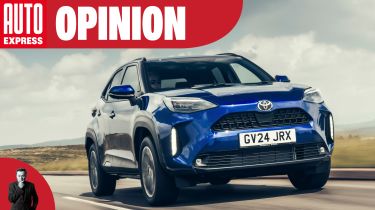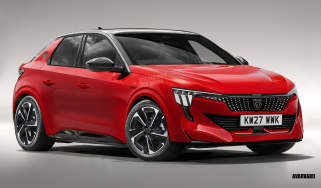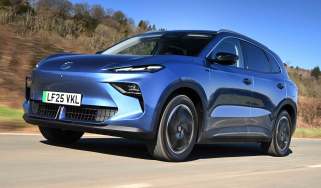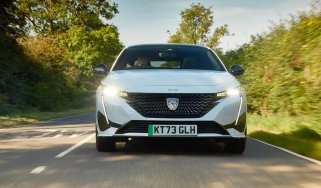The smart money is being spent on hybrid cars
Mike Rutherford thinks hybrids sit in the sweet spot between cheaper petrol and diesel models and more expensive pure-electric cars

In 2021, in what was approximately my 1,300th weekly column for Auto Express, I told our ruling politicians this: if they really wanted drivers to abandon ICE in favour of pricier, electric cars, it was – and still is – essential for them to be financially incentivised, on an immediate and ongoing basis.
Later the same year, I offered additional free advice that the easy and colossal ‘profit’ that Governments make on every pricey EV sold to private consumers was – and still is – excessive and unjustifiable.
Furthermore, I told our political ‘leaders’ what they apparently didn’t – and still don’t – know: that as they desperately try to turn consumers on to EVs, they’re turning them off, via punitively high Value Added Tax. In 2021, my stated solution was a 50 per cent cut in the standard 20 per cent VAT rate on some EVs.
Wind forward four years, and the automotive industry in Britain (via its trade body, the Society of Motor Manufacturers and Traders) made a ‘new’ formal announcement that opened with the words “Incentives needed” if more EVs are to be sold to real-world customers. A further plea was a halving of VAT on new EV purchases! I’m happy that my ideas are being nicked. But why adopt them now, rather than four wasted years ago?
Honestly, the car manufacturing industry and Governments of all colours must look, listen, learn and act quickly when they’re on the receiving end of gratis, solid advice, suggestions, constructive criticism and more from the likes of concerned journalists in the field and the most important people of all – consumers. It’s the latter who are expected to pay a basic price of, say, £50,000 to a manufacturer for a fairly average EV, plus a further VAT payment of £10,000 to the Government which, in effect, cops an undeserved tip of 20 per cent, or 10 grand, in the process. Talk about money for nothing.
Another crucial point I’ve been banging on about for years is that sensibly priced hybrid cars, which sit in the sensible sweet spot between slightly cheaper pure-petrol/pure-diesel models on one side, and generally expensive 100 per cent-electrics on the other, do not deserve to be banned from showrooms in 2030 or even 2035.
I’ve said it before and I’m saying it again: for a while now, the smart money is being spent by the smartest consumers on appropriately priced hybrids. And recently, the Government apparently woke up, got real and quietly indicated it agrees with me that such tech is very much part of the short, mid and long-term future.
For legal and other reasons, there are restrictions on what I can reveal here. But what I can say at this highly sensitive stage of the game is this: one of my trusted and reliable Whitehall insiders has dropped strong hints that hybrids are about to enjoy a lengthy stay of execution. Now that’s what I call justice. Long live the humble hybrid.
Used hybrid car deals

2022 Toyota
Corolla
25,450 milesAutomaticPetrol1.8L
Cash £15,500
2022 Nissan
Qashqai e-POWER
34,007 milesAutomaticPetrol1.5L
Cash £18,197
2020 BMW
3 Series
32,597 milesAutomaticPetrol2.0L
Cash £19,049
2023 Ford
Kuga
17,729 milesAutomaticPetrol2.5L
Cash £22,697
2023 Honda
Jazz
47,861 milesAutomaticPetrol1.5L
Cash £15,797
2022 Volvo
XC40
26,067 milesAutomaticPetrol1.5L
Cash £22,949
2020 Volkswagen
Golf GTE
44,075 milesAutomaticPetrol1.4L
Cash £16,200
2022 Toyota
Corolla
29,366 milesAutomaticPetrol1.8L
Cash £15,987
2020 Hyundai
Kona Hybrid
18,654 milesAutomaticPetrol1.6L
Cash £16,087Find a car with the experts




